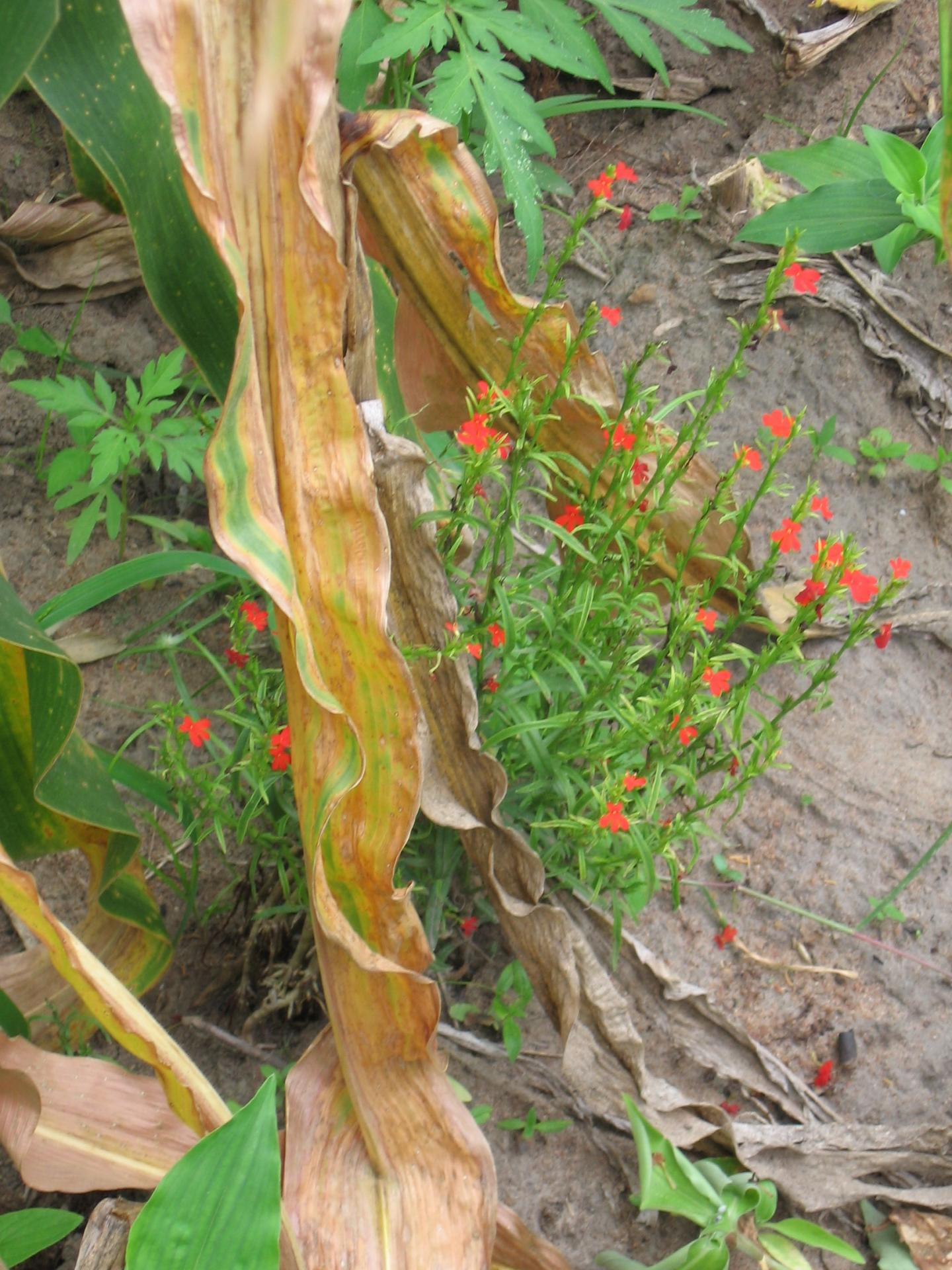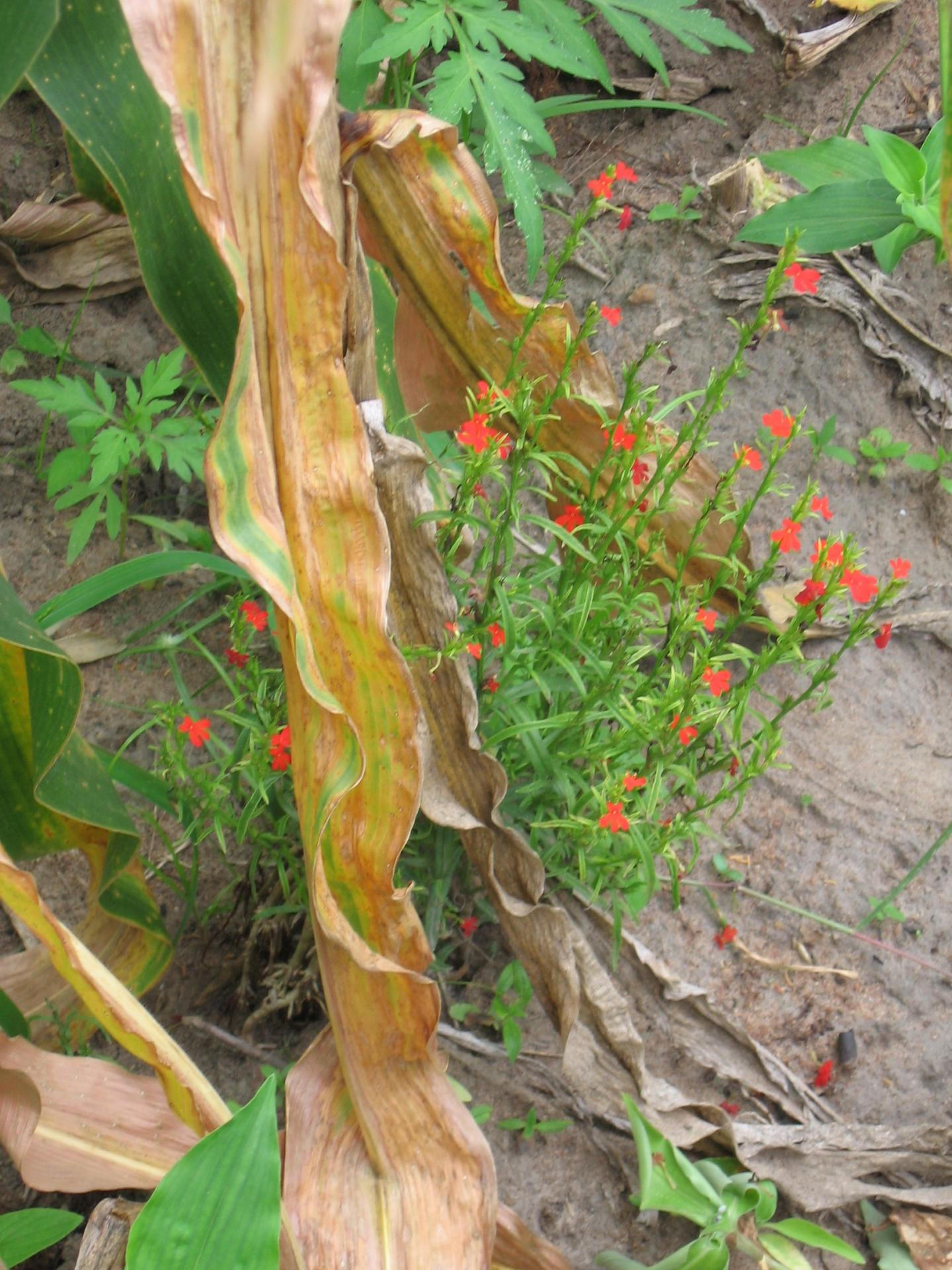
Credit: Christian Thierfelder, CIMMYT
The world produces more corn by weight than any other cereal crop. Corn, also known as maize, is a staple food in many countries. But farmers growing corn face many challenges, such as drought, diseases, and pests.
For example, in sub-Saharan Africa, 20 to 80% of corn yields may be lost because of a semi-parasitic plant, Striga. In areas infested with Striga, farmers may even lose their entire crops.
In a new study, researchers from southern Africa identified several varieties of corn resistant or tolerant to Striga. Importantly, these varieties also have improved nutritional content, particularly protein.
The combination of Striga tolerance and improved nutrition is key. Farmers, as well as local populations, will benefit, says Peter Setimela, a study co-author. Setimela is a scientist at the International Maize and Wheat Improvement Centre in Harare, Zimbabwe.
Striga infestations can force small farmers in sub-Saharan and southern Africa to abandon their farms. "Striga is known to affect fields that have poor soil fertility. Its seeds can stay in the soil for more than 15 years," says Setimela. "Many small farmers can't afford to buy chemicals to control Striga. They may also be unable to buy chemical fertilizers."
Having access to varieties of corn that can tolerate Striga will benefit these farmers. They will be able to continue farming and growing corn in areas with Striga.
The improved nutritional content of these corn varieties will also help. The varieties have a wider variety of amino acids, the building blocks of protein.
"Typically, corn is poor in essential amino acids. Human and animal bodies can't make these amino acids. They have to be obtained from food," says Setimela. "Lack of essential amino acids can impair growth and development. It can also weaken the immune system."
Many rural populations depend on corn as a staple food. "But these populations often have limited access to protein sources, such as eggs, meat, and dairy products," says Setimela. "If varieties of corn can provide high-quality protein, these populations will benefit."
Setimela and colleagues tested both typical and high-protein varieties of corn for Striga resistance in the lab and field.
Controlled conditions, such as those in the laboratory, allow researchers to conduct tests that may not be possible in the field. But "ultimately, crops will be grown in farmers' fields," says Setimela. "We ensured that the results from controlled environments also apply to field conditions."
Field experiments were carried out in three locations in Zimbabwe with diverse conditions. The researchers tested eight high-protein varieties and four typical varieties of maize. They measured several plant characteristics, including yield, height, vigor, and kernel weight.
Researchers found four varieties of high-protein corn that also showed high levels of Striga tolerance and high yields.
"These varieties will provide options to farmers in areas with Striga," says Setimela. "They will improve food security and nutrition."
###
Read more about this research in Crop Science. The European Union funded this research through Welthungerhilfe (SIMBA Project). The German Academic Exchange Service (DAAD) provided a partial scholarship to the first author. CIMMYT-Zimbabwe and the MAIZE CGIAR research provided scientific support; Seed Co, and Mukushi Seeds provided germplasm.
Media Contact
Susan Fisk
[email protected]
608-273-8091
@ASA_CSSA_SSSA
http://www.agronomy.org
Related Journal Article
http://dx.doi.org/10.2135/cropsci2017.10.0639





